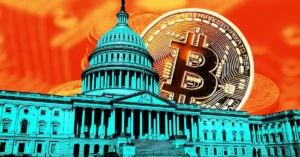CEO of CoinDCX provides clarity on India’s cryptocurrency tax laws and their implications

Sumit Gupta, co-founder and CEO of Indian crypto exchange CoinDCX, recently had an in-depth discussion with crypto.news about how India’s crypto tax policies have impacted the industry.
The implementation of taxes for cryptocurrencies in the 2022 Union Budget marked a significant change for the crypto economy in India. Digital currencies were classified as virtual digital assets (VDA) under section 2(47A) of the Income-tax Act 1961.
This move brought much-needed clarity and legitimacy to a previously uncertain sector, setting it on a clearer regulatory path.
However, while the regulatory environment became clearer, the accompanying burden was significant. A flat 30% tax rate along with an additional 1% TDS on transactions discouraged retail traders, leading to a decline in trading volumes and potentially driving crypto activities underground or to more tax-friendly jurisdictions.
Despite these challenges, experts like Gupta support the formal recognition and structured environment that cryptocurrencies now operate within.
Over a year since the introduction of the new tax framework, confusion and misconceptions persist among investors, both new and experienced. Many struggle with understanding how to report and calculate taxes on their crypto transactions, particularly in the context of staking, mining, and everyday usage.
Gupta aims to shed light on the complex aspects of cryptocurrency taxation, dispelling common myths and providing a clearer understanding of the regulations.
He addresses questions about how different crypto activities are taxed, comparing the flat 30% tax on trading and mining to the income tax slab rates applied to staking rewards. Gupta emphasizes the industry’s push to lower the tax rate on Virtual Digital Assets (VDAs) to align with other asset classes, advocating for policies that promote growth within the sector.
Furthermore, Gupta highlights common misconceptions about crypto taxes, such as the belief that all activities are taxed at a flat 30%. He stresses the importance of maintaining detailed records and seeking professional advice to navigate tax compliance effectively.
Regarding global cryptocurrency regulations discussed in G20 meetings, Gupta sees an opportunity for India to leverage these discussions to shape its own regulatory approach. He emphasizes the need for balanced regulations that benefit all stakeholders and enhance oversight in the industry.
The inclusion of cryptocurrency transactions under the Prevention of Money Laundering Act (PMLA) has positively impacted compliance and operational practices in India, promoting transparency and reducing illicit activities. Gupta acknowledges the role of industry associations and regulatory bodies in implementing these regulations effectively.
For high-frequency traders facing challenges due to the 1% Tax Deducted at Source (TDS) rule, Gupta suggests strategies to mitigate the impact, such as advocating for a reduction in the TDS rate to maintain liquidity and attract investors back to domestic exchanges.
Looking ahead, Gupta believes there is a chance for the government to reduce the tax burden on crypto transactions, particularly by reducing the TDS rate. He remains hopeful that such changes will create a more favorable environment for innovation and investment in the industry.
In pursuing innovation while ensuring compliance, Gupta advocates for clear and supportive regulations that foster technological advancements while preventing misuse. Engaging with industry stakeholders and studying global best practices can help strike a balance between innovation and compliance.
Source link
#CoinDCX #CEO #clarifies #Indias #crypto #tax #regulations #impact




